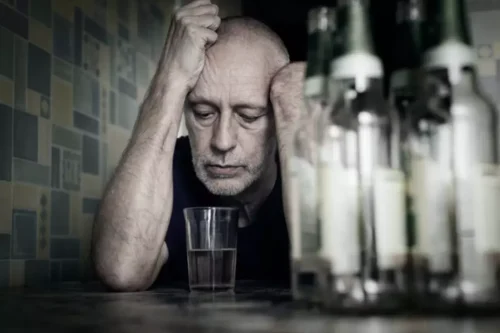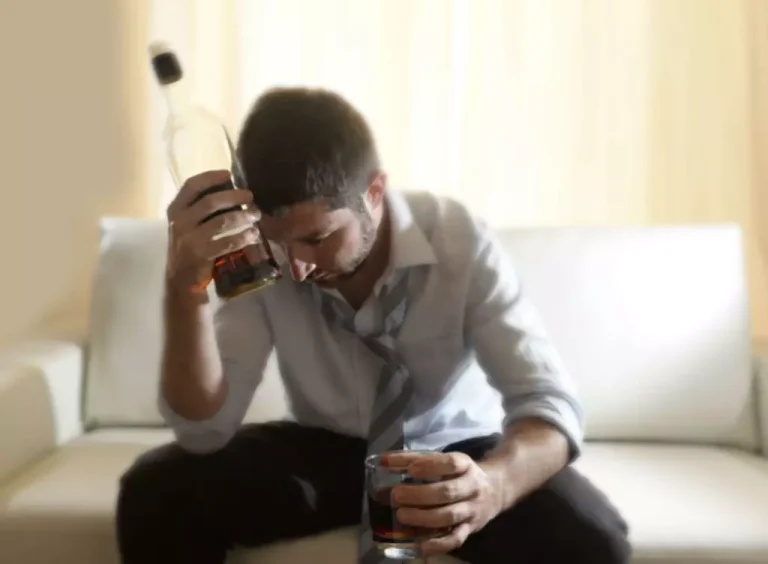
As a result, it produces less of—and becomes less sensitive to—these important sleep chemicals. Daily drinking can have serious consequences for a person’s health, both in the short- and long-term. Many of the effects of drinking every day can be reversed through early intervention. Multiple relaxation methods can be used to help you wind down and fall asleep. These include breathing exercises, visualization exercises and progressive muscle relaxation. The brain then moves on to the next stage of light sleep, but there is an increase in brave wave frequency, followed by a further slowing down.
Why Does Alcohol Make Me Sleepy?
It’s possible to become dependent on alcohol within weeks or sometimes even days of use. Alcohol withdrawal insomnia is a sleep disruption caused by the brain’s adaptation to alcohol. It leads to anxiety, difficulty falling asleep, and restless nights—and it’s highly common among people who just quit drinking. Insomnia is a common condition where a person has trouble falling asleep or staying asleep. Up to 40% of the general population experiences insomnia, while as many as 72% of people with an alcohol use disorder may have the condition. Proceed with caution when drinking before bedtime, as alcohol may be affecting your sleep more than you realize.
Beverages To Avoid to Sleep Soundly While Traveling

Falling asleep and getting a full night’s rest are real problems that need to be managed effectively to maintain sobriety. Thankfully, sleeping without alcohol is an achievable goal if you follow several recommended strategies. At the beginning of the NREM cycle, within seconds to just a few minutes after nodding off, alpha and theta brain waves cause eye movement to slow down. This is a stage of light sleep where the individual can be easily woken. Unfortunately, the problems aren’t over when you manage to fall asleep.
Sleep better. Sell more.

People with co-occurring medical conditions have an even higher risk of developing insomnia and/or substance use disorder. alcohol insomnia This blog covers the connection between alcohol consumption and insomnia and how you can get help to treat both conditions. If you’re turning to alcohol to help you sleep, you may be making the quality of your sleep worse. Many of us find ourselves tossing and turning at night, trying to get that elusive 7 to 8 hours of sleep experts say we need but never finding it.
- It’s common for someone who’s alcohol-dependent to experience long-term sleep problems since insomnia and other sleep disorders are typical symptoms of alcoholism.
- The study had several methodological limitations, including no screening for occult sleep disorders, poor outcome measure selection, and no active control group.
- Both pharmacological and nonpharmacological treatments are available, but many are either inappropriate or have not been adequately tested in patients with a history of abuse.
- Chronic hazardous drinking was indicated in 38% men and 17% women.
- The recommended treatment for insomnia disorder in the community, as well as those with AUD, is CBT-I.
Alcohol Dependence and its Relationship with Insomnia and Other Sleep Disorders
The more you drink, and the closer your drinking is to bedtime, the more it will negatively impact your sleep. Even moderate amounts of alcohol in your system at bedtime alters sleep architecture—the natural flow of sleep through different stages. It also leads to lighter, more restless sleep as the night wears on, diminished sleep quality, and next-day fatigue.
Does Stopping Alcohol Consumption Cause Insomnia

In 2012–2013, 70.9% of the original cohort who were still alive (age range 61–81 years), participated in phase 11. Of these 6,318 men and women, 6117 (96.8%) had data on alcohol and sleep. Men consumed more alcohol than women with 15.7% consuming 21 or more units per week compared to only 2.4% of women (Table 1). 30.5% men and 12.8% women scored more than 5 on the AUDIT score, indicating hazardous drinking. Participants were asked to report the number of alcoholic drinks they had consumed in the last 7 days.
Alcohol and Insomnia’s Relationship with Co-occurring Disorders
Recommendations for future research are provided along with special considerations for treating insomnia in this population, including avoiding cross-dependent sedatives, such as benzodiazepines and benzodiazepine receptor agonists (BzRAs). Insomnia and other sleep disturbances are exceedingly common during early recovery from alcohol dependence and likely contribute to relapse in this population. Although sleep improves with continued abstinence, permanent alterations to the sleep centers of the brain from chronic alcohol exposure may produce persistent abnormalities that, in many cases, require independent treatment.

How Does Alcohol Affect the Sleep Cycle?

Like nearly all of the body’s organs, the liver functions according to circadian rhythms. Alcohol interferes with these circadian rhythms regulating the liver, and can contribute to compromised liver function, liver toxicity, and disease. However, even small amounts of alcohol can have noticeable effects in some people. His research and clinical practice focuses on the entire myriad of sleep disorders. While a drink now and then may have a sedative effect that causes you to drift off faster, research shows that it can impede sleep quality in the long run. Over-the-counter pain medications can often alleviate some period symptoms.
Why Can’t I Sleep After Drinking Alcohol? Sleep MD Explains
Being dehydrated increases the likelihood of muscle cramps and headaches. Moreover, when you sleep poorly, your body is more likely to expel water it would normally retain. First, it helps relax the uterine muscles, and this may reduce cramping. Second, it promotes blood circulation to your reproductive organs, which may also offer pain relief. Use a heating pad https://ecosoberhouse.com/ or an electric blanket on the area when you’re trying to fall asleep; you can place it under your body if you’re a stomach sleeper.